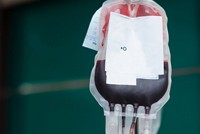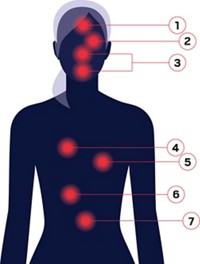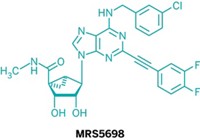Advertisement
Grab your lab coat. Let's get started
Welcome!
Welcome!
Create an account below to get 6 C&EN articles per month, receive newsletters and more - all free.
It seems this is your first time logging in online. Please enter the following information to continue.
As an ACS member you automatically get access to this site. All we need is few more details to create your reading experience.
Not you? Sign in with a different account.
Not you? Sign in with a different account.
ERROR 1
ERROR 1
ERROR 2
ERROR 2
ERROR 2
ERROR 2
ERROR 2
Password and Confirm password must match.
If you have an ACS member number, please enter it here so we can link this account to your membership. (optional)
ERROR 2
ACS values your privacy. By submitting your information, you are gaining access to C&EN and subscribing to our weekly newsletter. We use the information you provide to make your reading experience better, and we will never sell your data to third party members.
Pharmaceuticals
Covid-19
No evidence to support link between ibuprofen and COVID-19, experts say
WHO does not recommend against taking the drug for fever caused by novel coronavirus infection
by Leigh Krietsch Boerner
March 19, 2020

In the past week, news stories and social media posts have spread rumors that some fever-relieving and hypertension-treating medications might increase the risk and severity of COVID-19, the illness caused by the novel coronavirus SARS-CoV-2. Experts say that there is no evidence to back up these claims.
One medication type that’s gotten the most attention is nonsteroidal anti-inflammatory drugs (NSAIDs), which includes the popular drug ibuprofen. News stories reported that on March 17 the World Health Organization (WHO) suggested people avoid ibuprofen for treatment of fever from COVID-19.
This is not accurate, says WHO spokesman Christian Lindmeier. “The March 17 quote was taken out of a discussion at a press briefing and referred mainly to consulting your doctor instead of self-medicating,” he says. The news stories misinterpreted the suggestion, he adds.
Support nonprofit science journalism
C&EN has made this story and all of its coverage of the coronavirus epidemic freely available during the outbreak to keep the public informed. To support us:
Donate Join Subscribe
Lindmeier explains that the organization has found no published data on this topic and “does not recommend against the use of ibuprofen.”
On March 18, the European Medical Association (EMA) also released a statement saying the same thing.
Some of the confusion over ibuprofen and COVID-19 stems from a March 11 statement from the French health minister that advised against using NSAIDs to treat COVID-19 symptoms. The minister made this statement based on a correspondence from The Lancet(2020, DOI: 10.1016/S2213-2600(20)30116-8). In that letter, Michael Roth and coworkers at University Hospital Basel and Aristotle University of Thessaloniki suggested that ACE inhibitors, typically prescribed for high blood pressure and diabetes, may make people more susceptible to COVID-19. ACE inhibitors upregulate the production of angiotensin-converting enzyme 2 (ACE2), which the novel coronavirus uses to gain access to human cells. The authors also stated that ibuprofen can increase ACE2 levels.
The ibuprofen statement did not cite literature data, points out Melanie Ott, a virologist from the Gladstone Institutes. “The ibuprofen part seems to be completely unreferenced,” she says. She also didn’t know of and couldn’t find anything in the literature about the topic.
The correspondence mainly focused on ACE inhibitors, a class of drugs taken by 40 million people worldwide. ACE2 is expressed in the lungs, intestines, kidneys, and blood vessels. The authors argue that increased expression of the enzyme, caused by taking the inhibitors, would encourage infection with SARS-CoV-2. “We therefore hypothesize that diabetes and hypertension treatment with ACE2-stimulating drugs increases the risk of developing severe and fatal COVID-19,” the authors write. The researchers did not reply to requests for an interview and sent only links to press releases about the paper.
The idea that ACE inhibitors may make people more susceptible to COVID-19 is something to think about, Ott says. However, she says, “it’s important to note that this is not a final study, and I think this has to be tested.”
Giovanni de Simone, chair of the European Society of Cardiology’s council on hypertension, agrees. He describes the connection between ACE inhibitors and COVID-19 susceptibility as “mere speculation.” He points out that the correspondence did not include analysis of what other drugs the COVID-19 patients were taking, and was based only on three COVID-19 clinical reports from China.
Jia Zhuo, a physiologist from Tulane University, whose work was referenced in the communication, also does not support the hypothesis. He says that there is neither clinical nor experimental evidence to support it. “The entire letter doesn’t make any sense to me as a research scientist in the renin-angiotensin system.”
According to Robert Eckel, an endocrinologist and board member of the American Diabetes Association, the data described in the correspondence are observational and need to be investigated before patients change their medications. “It’s been recommended by many experts in the hypertension field that, although this is theoretically something that could be pursued scientifically, from what we know at this time it is not advisable to discontinue using those types of medications.”





Join the conversation
Contact the reporter
Submit a Letter to the Editor for publication
Engage with us on Twitter